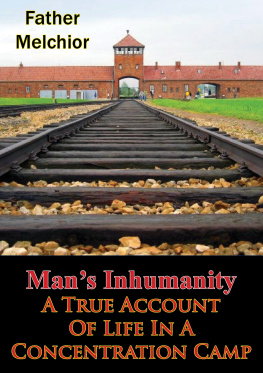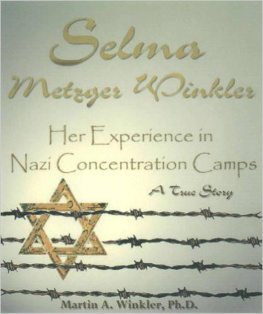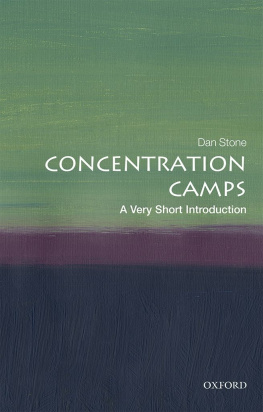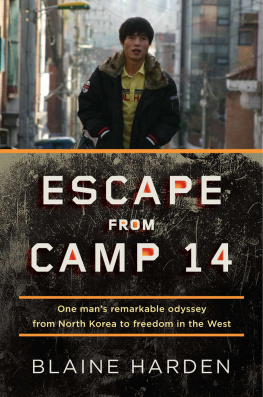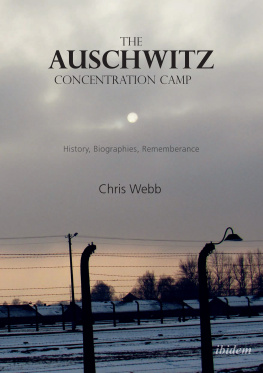

This edition is published by PICKLE PARTNERS PUBLISHINGwww.picklepartnerspublishing.com
To join our mailing list for new titles or for issues with our books picklepublishing@gmail.com
Or on Facebook
Text originally published in 1949 under the same title.
Pickle Partners Publishing 2015, all rights reserved. No part of this publication may be reproduced, stored in a retrieval system or transmitted by any means, electrical, mechanical or otherwise without the written permission of the copyright holder.
Publishers Note
Although in most cases we have retained the Authors original spelling and grammar to authentically reproduce the work of the Author and the original intent of such material, some additional notes and clarifications have been added for the modern readers benefit.
We have also made every effort to include all maps and illustrations of the original edition the limitations of formatting do not allow of including larger maps, we will upload as many of these maps as possible.
MANS INHUMANITY:
A TRUE ACCOUNT OF LIFE IN A CONCENTRATION CAMP
by
FATHER MELCHIOR
TABLE OF CONTENTS
Contents
DEDICATION
To the countless innocent victims who were sacrificed to the Moloch of War and to the millions of survivors uprooted from their native soil whose ultimate fate rests in the benign hands of Divine Providence, May their sufferings appease the just wrath of an all holy Deity and may they bring mankind true peace and a sense of universal brotherhood.
FOREWORD
Many impressive books have been written about German horror camps where, from 1939 until 1945, human beings were subjected to degrading experiences, or were destroyed like swarms of helpless insects.
Every publisher in the U.S.A. has been offered at least one hair-raising diary, and the flow of these human stories will probably continue for many years to come. It would seem to be a sign of mass psychosis. Former inmates of concentration camps have to tell their story. And many people feel reluctant to read another book filled with the smoke of burned bodies.
Morbid or not, it is indeed a strong urge that prompts those who escaped from hell to tell the world about it.
Remember Job:
Who will grant me that they (ray words) be marked down in a book with an iron pen and in a plate of lead, or be graven with a graver on the flint stone? (Job XIX, 23-24)
The modern Job who has spent five or more years in a horror camp has indeed a story to tell, if only to stir human conscience and show the wickedness of modern man who refused to worship God but made a pact with the Devil.
The camp where I stayed for several years has received less publicity than the larger and more smoothly run DACHAU and RAVENSBRCK camps where mass extermination was carried out with cold efficiency.
Our camp was called BRZEZINKI, in German BIRKENAU. Some prisoners nicknamed it RAJSKO. In literal translation this means HEAVEN-LIKE.
In Brzezinki-Birkenau, mass murder was carried out on such a fantastic scale that the executioners had set up five crematories. Almost all the inmates were destroyed and only a few lived long enough to greet their liberators. Except for one book written by a Polish woman thus far, no report has been graved on flintstone by any of the liberated Polish Jobs.
I am not a writer and my story will be a plain and frank account of things which I have witnessed and experienced in nine prisons and in three concentration camps, from which I was miraculously saved by God. It is not my aim to evoke your pity, nor to arouse your wrath against the Germans. I wish only to help you to realize what happens when man rejects God and when his passions become his sole master. He will then commit every kind of inhuman crime, whereas if he follows the Golden Rule he will withstand the most ruthless pressure and even in the midst of inhuman sufferings will desperately cling to his faith.
I wish to stir the conscience of statesmen so that they may unify their efforts in preventing a repetition of the crimes committed in the name of an omnipotent and evil deitythe STATE.
Author
MY FIFTH PRISON
Prisoners Are Not Allowed to Look Through the Window
I did not pay attention to the stern warning. The window became the only attractive spot in the dreary prison cell.
The window collaborated with the prisoners
It showed us pictures, it disclosed various scenes.
In winter we saw only a blanket of snow and the dark silhouettes of naked trees. Crows circled in the mist. Nothing seemed to happen on the bleak stage. But nevertheless I could look at it for hours.
The window was like a little door inviting us for a stroll, at least in spirit. All prisoners felt the same.
In the KALISZ prison we had to place chairs one on top of another and to climb on them like circus clowns. Some prisoners used to climb on the water pipe connected with the toilet. At least once a day each one of us had to look through the window.
In SIERADZthe window showed a more varied landscape: two railway tracks and a long, winding line of trains and passenger cars filled with soldiers; freight cars loaded with war material; cars, bearing the Red Cross, carried the wounded.
In our cell crammed with men who waited for trial or for the signal to depart to a death camp, the air was heavy with the sickening smell of damp clothes and unwashed bodies.
We knew that somewhere on the white Russian steppes the war was raging. Dead and wounded soldiers were lying in the cold embrace of a terrible Russian winter. German guards often talked about that Russian winter. They were obviously afraid of being sent to the dreaded Eastern front. It had become a kind of obsession.
Forgetting the rules, they also looked through the window and stared with blinking unbelieving eyes at the ambulance trains, which bore the Red Cross on each car. These cars appeared more and more often. They came from the East. They seemed to multiply. And the guards looked more and more gloomy
I remember when the news of the war with Russia spread like fire, a new hope seemed to light up the dark cells of the Kalisz prison.
During the daily stroll in the yard I could not refrain from smiling at the sight of one of the officials. His beefy face looked so harassed and dazed. He flew into a rage. He slapped me on the face and kicked me several times. I wonder where he is now. He must have changed his job. There are no jobs in Birkenau for German guards any more.
* * *
After two years I had a record of four prisons. Then I landed in the fifth one.
Old timers used to tell me that the first days are the most crucial for every newcomer. One cannot get used to the thought of being locked up. Later on, however, the craving for freedom becomes less acute and one begins to get used to the new surroundings. This is exactly how I felt.
When the Gestapo caught me in Sanok. I found myself in the local prison. This first prison was not too bad, though. The cell was almost comfortable. In spite of this, each day seemed to last a year and I suffered like a wild animal trapped by hunters. At the thought of a long imprisonment, I would break out in a cold sweat which made me shiver.
Gradually, however, I became less impatient.
The dreadful, dismal and degrading prisons of Lodz, Cracow and Kalisz could not deprive me of a certain newly acquired indifference. I was more and more detached and calm. The slamming of iron and wooden gates of every new prison failed to impress me, though quite often my heart would bolt like a frightened fox.
Next page
